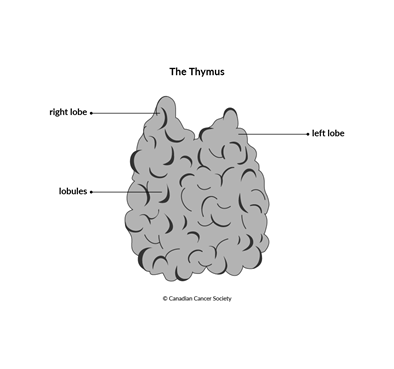The thymus
The thymus is a small, irregular-shaped
Structure of the thymus
The thymus is divided into 2 main parts – a right lobe and a left lobe. Each lobe is divided into smaller sections called lobules that give the thymus its bumpy appearance. Each lobule is made up of a centre part (called the medulla) and an outer layer (called the cortex). A thin covering (capsule) surrounds and protects the thymus.

The thymus is mainly made up of
The thymus changes in size as you get older. It is large in newborns and toddlers. It is biggest during puberty then slowly begins to shrink as adulthood approaches.
The thymus is most active during childhood and youth. By late adulthood, most of the thymus is made up of fat tissue.
What the thymus does
The thymus makes T cells (T lymphocytes) that travel throughout the body to help fight infection, disease and foreign substances. The thymus also makes
Lymphocytes travel from the
